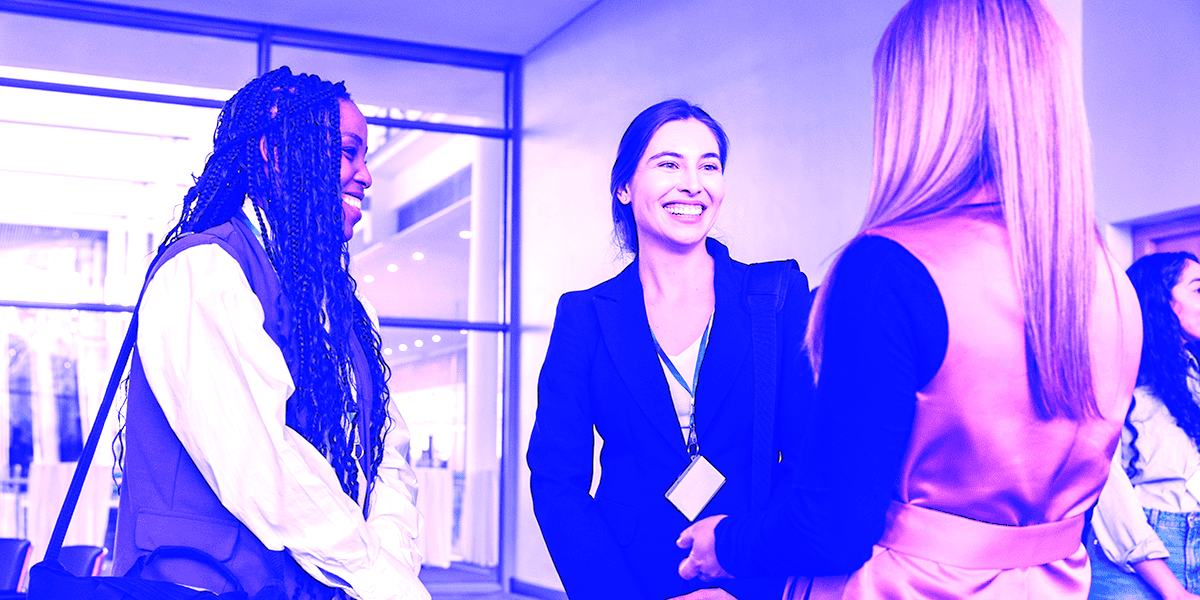
Imagine yourself in these scenarios:
You walk into a crowded bar to meet a friend after work.
You are sitting in on an intense meeting between your two managers.
You are going on a date and plan to have a difficult conversation with your partner.
You are at a party with your best friends, and notice an unfamiliar face standing alone in the corner.
How do you imagine yourself responding in each of these situations? The answers may reveal how high your social intelligence is.
Social intelligence—your ability to read social cues and situations—will impact your life in many ways; your relationships, education, and career will all be affected by your perceived social intelligence.
I’m going to walk you through the definition of social intelligence, and give you 5 signs that you are on the higher end of the social intelligence scale.
What is social intelligence?
Social intelligence is your ability to understand and navigate social situations effectively.
It involves reading verbal and nonverbal cues, being curious and understanding of the emotions and motivations of others, and adapting your behavior to make meaningful connections with the people in your social and professional circles.
Think of social intelligence like an interpersonal radar—it helps you pick up on the subtle dynamics happening around you and respond appropriately.
Unlike IQ, which measures cognitive ability, or even emotional intelligence, which focuses on managing your own emotions, social intelligence is specifically about how well you understand and interact with other people.
Adapting your communication style. Socially intelligent people naturally adjust how they speak and behave based on their audience—they might be more formal with a boss, more casual with friends, or more patient with someone who seems anxious. They are still authentically themselves, just allow different parts of themselves to shine in different situations. Understanding social contexts. This means recognizing the unspoken rules and expectations of different environments, whether it’s knowing when to be serious in a business meeting or when to lighten the mood at a tense family dinner.
It’s worth noting that while researchers generally agree on what social intelligence looks like, it’s difficult to measure objectively. There’s no standardized test that can capture the nuanced ways people connect with others, which brings us to an important point about neurodivergence and social intelligence.
Social intelligence and neurodivergence
Social intelligence can look different for neurodivergent people, and it’s important to recognize that neurodivergent doesn’t equate to socially unintelligent. Autistic individuals, people with ADHD, and others may process social information differently, but they often develop unique strengths in understanding human behavior and building meaningful connections.
Some neurodivergent people excel at reading patterns in social behavior or have deep empathy that allows them to connect with others in profound ways. Others might struggle with certain aspects of social interaction while being exceptionally skilled at others—like understanding someone’s emotional needs even if they miss conventional social cues.
Social intelligence isn’t one-size-fits-all. A person who seems quiet or doesn’t make eye contact might still be highly attuned to the emotions and needs of others around them. Different neurotypes bring different social strengths to the table.
What matters most is how effectively someone can connect with others and navigate social situations in their own way, not whether they follow traditional social scripts or expectations.
Keep that in mind as we move through the rest of this topic.
5 signs you have high social intelligence
The signs of high social intelligence aren’t always obvious. You might not realize you’re doing these things because they feel natural to you. But if you recognize several of these patterns in your behavior, chances are you’re more socially intelligent than you think.
1. You notice when someone’s words don’t match their energy
Your coworker says “I’m fine” when you ask how they’re doing, but something feels off. Their shoulders are tense, their smile doesn’t reach their eyes, and their voice has a strained quality you’ve never heard before. While others might take the “I’m fine” at face value, you pick up on the disconnect between their words and their actual emotional state.
This ability to read between the lines—to notice when someone’s verbal message doesn’t align with their body language, tone, or energy—is a hallmark of social intelligence. You don’t necessarily call them out on it, but you file the information away and maybe check in with them later or adjust how you interact with them for the rest of the day.
This social skill also plays into your professional life. Your ability to manage up and read coded language at work will be a massive asset as you navigate your career path.
Related topics:
2. Your mind doesn’t wander during conversations
It’s easy for our minds to drift during conversations.
Personally, I tend to start thinking about what I want to say next before the person I’m speaking with has stopped talking.
I know that’s a weakness for me, so I am actively working on my passive listening skills, so I can let go of thoughts about what to say next (or my what I want for dinner, or a project I’m working on…) and instead focus on the person in front of me.
When your attention stays on your conversation partner, you catch subtleties that others miss. You hear the uncertainty in their voice when they talk about a new relationship, or you notice the genuine excitement when they mention their weekend plans.
This level of attention makes people feel heard and valued, which strengthens your connections and gives you deeper insight into what’s really going on in their world.
Related topics:
3. You adapt your communication style based on who you’re talking to
Imagine trying to hold a phone conversation with your boss, but using the same tone and language you’d use with your mom.
Or think about trying to tell your bestie about your weekend, using the same careful verbiage you’d use when your boss asks, “How was your weekend?”
The truth is, we need to adapt our language and communication styles depending on who we are talking to. Odds are, if you are already doing this without thinking about it, your social intelligence is high in this particular area.
Maybe you’re more formal and structured when presenting ideas to your manager, but casual and spontaneous when brainstorming with your coworkers. You might choose to have serious conversations with your partner face-to-face, but use quick texts for everyday check-ins.
Being able to adjust your communication style while still being yourself is a sign of high social intelligence.
Related topics:
4. You can sense the energy or mood of the room
Have you ever walked into a room that immediately felt tense? You can sense something boiling under the surface, even though to your eyes, all looks normal.
On the flip side, maybe you’ve entered a space and immediately felt the joy and cheerfulness of the people already gathered there.
In either scenario, you’d be showing high social intelligence, because you are quickly picking up on subtle social cues from a group of people you have yet to deeply interact with.
When people talk about the “energy” of a group of people or an individual, they are talking about all the little signs and signals we can pick up on when we’re tuned into the others around us.
When you pick up the energy, vibe, or mood of a room, you do so by noticing the people laughing in the corner, or the tight and uncomfortable smiles, or the awkward silence that hangs heavy in the air. When you can pick up on these little subtleties and make a quick call about the “energy” of the space, that’s social intelligence at work.
Note that often, our initial judgement calls can be wrong. A quiet group of people might not be awkward, but rather a friend group who are close enough to enjoy silence together. This is why quick judgement calls and black and white thinking can work against your social intelligence if they aren’t kept in check.
5. You know when to speak up and when to stay quiet
This might be one of the most valuable applications of social intelligence—knowing when your voice will add to a conversation and when it’s better to listen and observe.
Maybe you’re in a meeting where tensions are running high, and you recognize that now isn’t the time to bring up your concerns about the project timeline. Or you’re at a party where someone is telling a story, and you can sense they need to get it all out without interruption.
On the flip side, you also recognize those moments when speaking up is exactly what’s needed. You notice when a conversation has stalled and could use a new direction, or when someone in the group looks like they want to contribute but can’t find an opening.
This skill requires you to constantly read the room and assess whether your contribution will help or hurt the dynamic. Don’t mix this up with being passive or reserved, or constantly self-analyzing before you speak.
Apply this social intelligence skill when necessary (like job interviews and first dates) and let yourself relax into natural conversation in casual scenarios.
Related topics:
Social intelligence is learnable
Social intelligence isn’t a fixed trait; it’s a skill you can develop with practice and awareness. If you recognized yourself in several of these signs, you’re already ahead of the game. If not, don’t worry—every interaction is an opportunity to tune in more deeply to the people around you.
Want to practice your social intelligence and get paid? Work with us.














